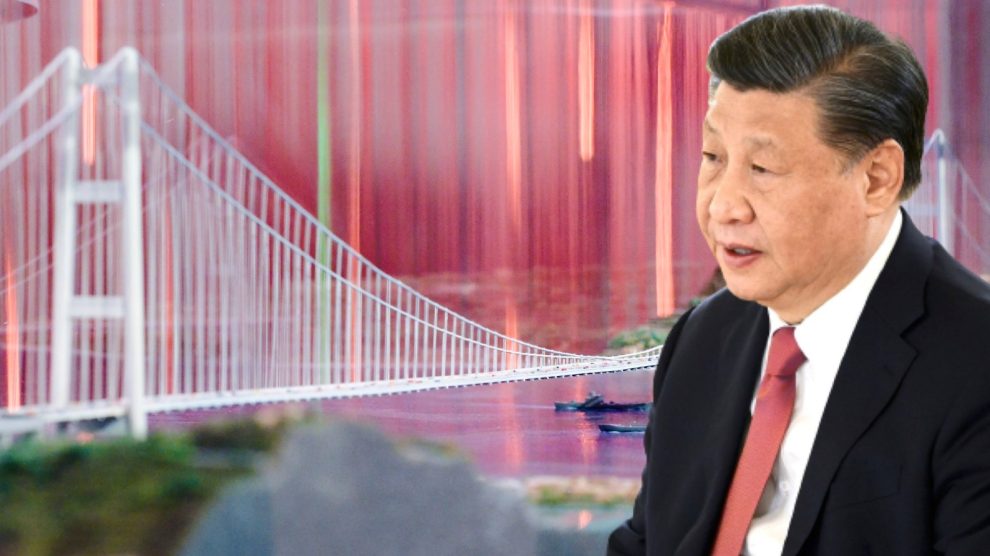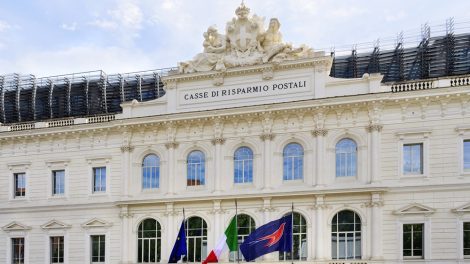China eyes the Messina Strait bridge. The Chinese State-owned China Communications Construction Company (CCCC) is “definitely very interested” in building the €10 billion bridge over the Strait of Messina. Thus spoke Pei Minshan, deputy general manager of the company and civil engineer specialising in bridges, in an interview with Il Sole 24 Ore.
- On Tuesday, Italy’s Infrastructure and Transport Minister Matteo Salvini clarified that the bridge’s construction would most likely be carried out by the existing contractor, Eurolink (more below).
A critical infrastructure. The massive and long-standing project is a priority for Minister Salvini, who oversees the project (although he might entrust it to a commissioner) and who recently announced that he intends to have it approved and start construction by August 2024.
- According to the minister, the bridge’s realisation will have important benefits for those living on the island of Sicily. “Conservative estimates foresee an increase in wealth of €5-6 billion per year for Sicily alone due to higher [transport] speeds,” he explained.
- The ideal way forward would also entail upgrading the island’s entire transport network, including roads and railways, which are fundamental for freight traffic (and crucial in the operations of Chinese State-controlled companies). Such an upgrade, however, is still uncertain.
Chinese interests. Having learned that the Italian Council of Ministers had given the go-ahead to resume the design and construction of the bridge immediately, Mr Pei highlighted that CCCC, “as the world’s largest bridge design and construction company, […] is certainly very interested in implementing the project.”
- He expressed his hope that the company could “use [its] already-proven technology in the construction of two other similar bridges to help promote economic development and integration in the south and north of Italy.”
- The manager also emphasised that the company is “very interested in cooperating with Italy,” where the alliance between Genoa and Beijing, involving the city’s seaport and CCCC, has been consolidated in recent years.
Salvini’s response. On Tuesday, the minister said that the company set up to oversee the project intends to continue working with Eurolink, the consortium (led by Italian construction titan Webuild) that was awarded the European tender.
- Eurolink, he said, will “most likely continue with the final version of the project […] I don’t see the possibility of others intervening to put their hands on a project that [almost certainly] only needs to be updated but is final.”
Mapping CCCC. In 2019, when Italy signed the Memorandum of Understanding with China adhering to the Belt and Road Initiative, CCCC – a contractor in many BRI projects – signed two cooperation agreements: one with the Port System Authority of the Eastern Adriatic Sea, involving the ports of Trieste and Monfalcone, and one with the Extraordinary Commissioner for the reconstruction of Genoa and the Port System Authority of the Western Ligurian Sea.
- In 2020 the US government blacklisted CCCC for its links with the Chinese military. The Department of Commerce pointed out the company’s role in helping the Chinese military build and militarise internationally condemned artificial islands in the South China Sea.
- The company also produces ZPCM seaport cranes, which the Pentagon fears could be covert espionage tools in use by the Chinese government. They are installed in some Italian ports along with Logink, a data collection platform in the hands of the Chinese Communist Party.
Beijing’s other aims on Italian infrastructure. Chinese companies are also looking with interest at the seaport of Taranto, essential for Italian Armed Forces and NATO activities, as well as that of Trieste. It all happens at a crucial moment for Italy-China relations, as the government will have to decide by year’s end whether to let the BRI MoU auto-renew. The issue, as Prime Minister Giorgia Meloni said recently, is “still being evaluated.”





